Is ChatGPT Hurting Bloggers? I Asked, and the Answer Surprised Me

The Big Question Every Blogger Is Afraid to Ask: Is ChatGPT Hurting Bloggers?
Let’s be honest. With so much AI content flooding the web, a lot of us are wondering the same thing: is ChatGPT hurting bloggers like me?
Content mills are cranking out thousands of AI-written articles daily. Google is rewriting the rulebook on search rankings. Meanwhile, ChatGPT and other large language models keep getting better at doing the one thing bloggers rely on: writing.
So I decided to go straight to the source and ask the question most of us are thinking but don’t always say out loud: “Is ChatGPT hurting bloggers like me?”
The answer I got was… surprisingly honest.
How AI Like ChatGPT Is Shaking Up Blogging
Before we get to what ChatGPT told me, let’s lay out the reality that bloggers are dealing with right now.
AI-generated content is flooding the internet. Entire websites are being built with almost no human involvement. You’ve probably seen those “Top 10 Best Air Purifiers for 2025” posts that feel a little too clean, a little too formulaic. That’s not by accident. AI tools can scrape data, summarize reviews, and spit out entire articles in minutes.
Google has been playing catch-up, constantly tweaking its algorithms to reward “helpful content” while trying to penalize low-quality, purely AI-generated spam. But the line between human and AI content is getting blurrier by the day.
For affiliate bloggers, the risk feels even bigger. AI can spin out endless product roundups, buying guides, and reviews—sometimes pulling directly from the same sources we spend hours carefully researching. It’s not hard to imagine a future where the internet is full of bland, SEO-optimized, AI-written content that pushes smaller, independent voices out of the rankings.
The Experiment: I Asked If ChatGPT Is Hurting Bloggers
So I decided to test the machine’s self-awareness. Here’s the exact prompt I gave it:
“Do you think ChatGPT is hurting bloggers by replacing the kind of content they create?”
Simple. Direct. No leading language. I wanted to see how honest it would be.
ChatGPT’s Answer: Surprisingly Honest, Data-Backed, and a Little Scary
When I asked ChatGPT if it’s hurting bloggers like me, here’s what it actually told me:
Short answer: generative AI tools like ChatGPT are definitely eating into some of the traffic that traditional blog posts once captured, but they are not a death sentence for bloggers. They shift the playing field. Writers who double down on personal expertise, original reporting, and community will still win, while commodity “how-to” or “what-is” pieces risk getting summarized away. Here is the fuller picture.
How ChatGPT is hurting conventional blog traffic
- Zero-click answers in search. Google’s AI Overviews now appear in roughly 13 percent of queries, pulling key details directly into the SERP. That means many searchers solve their problem without ever visiting a site.
- Large CTR drops for publishers. MailOnline reported a 56 percent click-through decline on keywords that trigger an AI Overview.
- Industry-wide forecasts. Gartner still projects a 25 percent fall in organic search traffic by 2026 as more “answer engines” replace link lists.
- Early analytics from site owners. Tech press outlets see measurable losses; Android Headlines called the trend “traffic cannibalization.”
Why that does not spell doom
- The traffic that does click is higher quality. One cross-industry case study found visitors who arrive via generative answers bounce 23 percent less and read more pages.
- AI cannot mimic lived experience. Product hands-on tests, opinion pieces, and first-person narratives still require a human voice and credibility.
- Tools, not just rivals. ChatGPT speeds up research, outlines, and SEO housekeeping; saving hours lets bloggers focus on deeper analysis and multimedia extras.
Practical moves to stay competitive
- Lean hard on E-E-A-T. Prove first-hand experience (screenshots, original photos, lab tests, interviews). That evidence feeds both readers and AI models.
- Publish perspective pieces, not just information. Frame news with opinion, back-story, and consequences. Those angles age better in an AI-rich SERP.
- Diversify distribution. Build newsletter, podcast, and social channels so you are not wholly beholden to Google traffic.
- Optimize for answer inclusion. If Google is going to quote you, engineer content blocks (clear definitions, concise bullet recaps, schema) so your brand gets attribution even inside the AI snippet.
- Invest in interactivity. Calculators, comparison tools, and mini-apps are sticky and currently outside ChatGPT’s scope.
- Use AI as your junior researcher. Offload data gathering and mundane rewrites, then add your voice and verification.
Bottom line, Tony: ChatGPT is absolutely siphoning off low-value clicks, but it is also creating a premium on real expertise and distinct voice. Treat AI like both competitor and power tool; automate the generic work, then double down on what only you can write. The bloggers who specialize, build trust, and meet readers in multiple formats will come out ahead.
My Take: Should Bloggers Be Worried?
Here’s my honest take as someone who runs a content site for a living.
Yes, AI is absolutely changing the landscape. The days of simply regurgitating product specs or writing generic how-to guides without adding any personal value are numbered. That kind of content can easily be automated now. And let’s face it—most of it probably should be.
But if you’re creating content that’s based on first-hand use, personal opinion, unique research, or actual expertise, you still have a serious edge over AI. Readers trust real people. Google, for all its flaws, is still trying to prioritize sites that demonstrate actual experience and authority.
The real question isn’t just is ChatGPT hurting bloggers, but whether bloggers are adapting fast enough to stay ahead of AI-generated content.
So yes, I’m concerned. But I’m not panicking. Not yet.
The Real Danger: AI Won’t Kill Blogging. But Lazy Blogging Will.
The biggest threat to bloggers isn’t AI itself. It’s complacency.
If you’re phoning in your posts, recycling the same old listicles, or relying entirely on keyword stuffing, AI is already better at that than you. But if you’re putting in real work—testing products, offering honest reviews, sharing opinions, giving people something they can’t get from a machine—you’re still providing value that AI can’t replicate.
In some ways, AI might actually help bloggers who embrace it as a tool, not a crutch. I use AI every week to brainstorm outlines, speed up research, and draft pieces like this. But I still edit, refine, and bring my own voice to every post.
What Happens Next for Bloggers Like Us?
AI isn’t going anywhere. If anything, it’s only getting better and more integrated into the way content is created and consumed. As bloggers, we need to adapt. That might mean:
- Getting more personal in our content
- Offering real-world reviews and first-hand experiences
- Building communities and loyal audiences who care about us, not just the information
- Using AI for efficiency without sacrificing originality
The bloggers who survive the AI wave won’t necessarily be the ones who write the most. They’ll be the ones who write what AI can’t.
FAQ: Quick Answers About AI and Blogging
Is AI killing blogging?
No, but it’s changing it fast. Bloggers who rely on generic content may struggle, but original voices still have value.
Can ChatGPT replace bloggers?
It can replace some low-effort content. It can’t replace personal experience, humor, or unique perspective.
Does Google penalize AI content?
Not automatically. Google looks for helpful, original content—regardless of how it’s created. But AI spam gets penalized.
How can bloggers use AI safely?
As a tool for research, outlines, and drafts. But human editing, fact-checking, and voice are still critical.

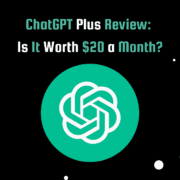
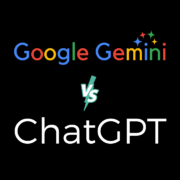



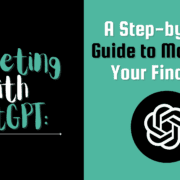
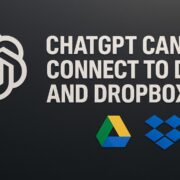
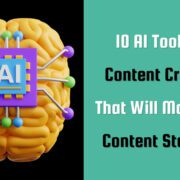
Leave a Reply
Want to join the discussion?Feel free to contribute!